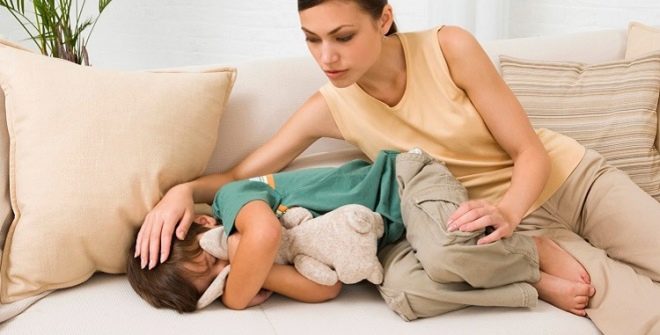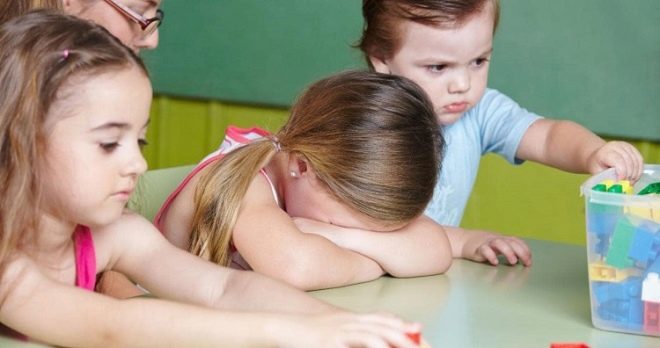Psychosomatic causes of diarrhea in children and adults
Diarrhea is an unpleasant condition that happens to everyone from time to time. But there are adults and children who suffer from diarrhea quite often. About 1.5 million children on the planet under the age of 5 die each year from dehydration caused by frequent loose stools. Chronic diarrhea (on an ongoing basis), according to statistics, affects up to 14% of adults. Quite often a psychological or psychogenic factor plays a role in the occurrence of diarrhea. We will talk about the psychosomatic causes of diarrhea in this article.
About pathology
An older disorder than diarrhea is difficult to find. It was described by doctors of ancient Rome and Greece, there are references to it in the historical sources of the Middle Ages. An independent disease is not considered, but is recognized as a rather expressive symptom of various diseases: both infectious and non-infectious.
Modern physicians are sure that diarrhea can be dangerous, but not by itself, as a phenomenon, but due to the consequences - it leads to rapid dehydration of the human body. Faster dehydration develops in children. Acute diarrhea is the body's response to bacteria, viruses, enzyme deficiency, and stress, provided that the urge to empty the bowel occurs 3 times a day. If the liquid stool persists for more than two weeks, they talk about prolonged diarrhea, and if about a month - about chronic. Diarrhea often accompanies mental disorders, including post-stress and anxiety personality disorders.
Diarrhea is always associated with disruption of the digestive organs, which leads to the dilution of feces and increased urge to defecate. The reason can be as a violation of individual organs, for example, diseases of the gallbladder, and infectious agents - bacteria and viruses, hormonal disorders, disorders of the nervous system, in which the brain sends intestinal receptors wrong, distorted signals.
Diarrhea, which is not caused by diseases of the organs and infections, is considered psychosomatic. That is, psychosomatics examines the influence of the nervous and mental factors on the work of the intestine.
Psychosomatic causes
To understand how and why a person can create intestinal disorder himself, one should know that the intestine in psychosomatic medicine means the ability to receive and digest information from the outside. And it's not just about food, food. It is about a person’s ability to accept new things, to adequately evaluate, digest and release. This is normal digestion.
Diarrhea is always associated with stress, due to which the work of the nervous system and the brain is disrupted. Under the action of irregular nerve signals, the intestinal walls begin to decline untimely, which leads to frequent defecation. A person does not digest, does not assimilate anything from the information received from outside, and his body “signals” to him about this speeded up liquid stool.
Psychosomatic diarrhea in a child usually lasts no more than two days, in adults - within three days. As soon as the situation causing indigestion is resolved, diarrhea stops. In some cases, when the situation is not resolved, diarrhea can become chronic.
The psychological portrait of an adult suffering from regular diarrhea and vomiting or from chronic diarrhea is fairly simple: man is fixated on his own attitudes and ideas about life and does not perceive the new that comes to him. An example is that an aged woman refuses to pay utility bills via the Internet, believing that it would be better to defend a huge queue at the post office. The more often she encounters hints from those close to the fact that there are more modern payment methods that do not require standing in lines, the more severe diarrhea a pensioner develops.
Unwillingness to get rid of emotional "garbage", which has accumulated (experiences, long gone deeds), also leads to the development of idiopathic and prolonged diarrhea. Often diarrhea suffer stubborn, proud, people who deny any opinion that is different from their own.
Any event, any information, according to psychosomatics, comes to us not just like that, but solely for the sake of our own good. If a person rejects what life sends him, he does not even risk trying to change his pattern of behavior and thinking, then diarrhea can become his frequent companion.
In children
Pediatric diarrhea is often caused by fears of change. Any dramatic changes in family life - moving, starting a kindergarten or school, divorcing parents, leaving one of the parents - for the child represent a direct threat to his calm habitual existence. Coming out of the comfort zone, children quickly begin to experience fear, which quickly leads to the development of diarrhea. Please note that children who are in the center of such important family events usually start complaining of abdominal pain and diarrhea within 24 hours.
Diarrhea in infants may be caused by an increase in adrenaline in the mother’s body if the baby is breastfed. Mom is under stress, the hormone partially penetrates the milk, causing anxiety and fear in the baby, as well as the rapid development of diarrhea. Mum in bewilderment - did not give the baby anything to eat, and he had diarrhea. The reason must be sought in your own emotions. Breastfeeding babies catch disturbing situations in their usual habitat on an intuitive level and react to them with a liquid stool.
After 3 years, diarrhea can become personalized. Thus, a child who does not have contact with a caregiver in the kindergarten, begins on an emotional level “not to digest” this person, which leads to a regularly repeated liquid stool. Often, problems with bowels and bowel movements are experienced by children who cannot find a common language with their stepfather or stepmother, and are afraid of them.
Diarrhea in adolescents it is connected not only with the need imposed by society to constantly accept new things (that is, to learn), but also with the inability to sift out qualitative information from poor quality information. They consume it all, indiscriminately, in large quantities. And it is this that often causes chronic or prolonged diarrhea.
Often in schoolchildren and adolescents, diarrhea begins due to an overabundance of informational “food” before tests and exams. Strong uncertainty in one's own forces can lead not only to a liquid stool - dysbacteriosis can also occur.
The impact of speech habits
In relation to diarrhea, psychoanalysts often consider the influence of destructive word forms. A word is no less force than a thought or emotion. It is noticed that adults and teenagers, who often use curses and harsh words in their speech, more often than others suffer from disorders of the chair. If such verbal turns are not eliminated from speech, hemorrhoids can develop (and medical statistics fully confirm the connection between frequent diarrhea and varicose hemorrhoidal veins). The most serious consequences for fraudulent individuals may be the development of tumors in the rectal area.
Researchers opinion and treatment
The psychology of intestinal diseases paid a lot of attention Louise Hay She points out in her books and tables of diseases that diarrhea is closely associated with fear, denial and attempts to escape from events. Canadian writer and psychologist Liz Burbo claims that diarrhea is likely in those who reject new events and ideas, and with them the joy and beauty of life. Such people cease to rejoice, be grateful, and express gratitude to others.
Bodo baginski writes that diarrhea is always based on problems with personal, deep fears of a person. On the one hand, a person wants to get rid of past experience that causes fear, on the other hand, it is scary to do it. It turns out a vicious circle. And each new impression or experience, stress can provoke a new circle of fear and, accordingly, diarrhea.
Psychotherapist Valery Sinelnikov indicates that the basis of diarrhea - anxiety, a sense of the unreliability of the world, fluctuation. Every situation is emergency for them, every experience is excessive. The habit of worrying about anything from domestic trifles to the global problems of the inhabitants of the earth leads to persistent intestinal upset, which is often exacerbated.
Oleg Torsunov indicates that frequent neurogenic diarrhea is characteristic of people who are spiritually unclean, who are illegible in food, choice of partners, friends, contacts, ideas, hobbies.
Curing a person with diarrhea is more difficult than it seems. Alleged diarrhea does not eliminate the true cause, and diarrhea will return. Useful psychotherapy, aimed at a more positive perception of the world. If a person sees that there is a lot of new and interesting around, that it is absolutely not dangerous, but useful for him, then he can change his life position once and for all, based on anxiety, fear, rejection.
Getting rid of diarrhea will be helped by a new good habit - not to “run” from difficulties and problematic situations, but to “turn to face them” and resolve issues as they come. Adults can be difficult to quickly rebuild their own reactions to such requirements, but if it succeeds, then you can forget about the painful frequent diarrhea.
Children's diarrhea needs not only examination by the pediatrician and timely treatment (to prevent dehydration), but also analysis of situations that have caused fear and anxiety in the baby. Parents should talk heart to heart, try to find out what the essence of fear is, and convey to the child that his fears are completely groundless. A child who feels loved, who feels the support of adults, experiences his fears more easily (by and large, normal for the period of growing up). Participation and support is the best cure for diarrhea for children and adolescents.


















